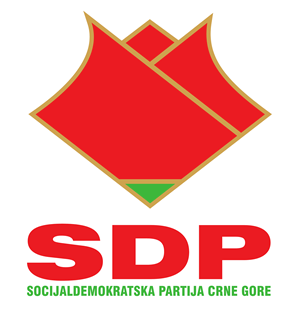As old as society itself, corruption continues to represent the greatest challenge to democracy and its institutions. Corruption undermines social stability, hinders economic development, negates European values, and erodes public trust. Considering all the negative consequences it produces for society, corruption primarily should be seen as a complex phenomenon and this is why it is difficult to establish a singular and precise definition. The most comprehensive and commonly heard definition is provided by the World Bank and states:
"Corruption is the abuse of public office for private gain."
The fight against corruption represents a fundamental commitment of every democratic society. As the primary enemy of democracy, corruption obliges all social participants, especially political entities, to direct their actions towards combating this plague.
Although it is not possible to completely eradicate corruption, it is possible to influence its reduction. To minimize it, it is necessary to improve the mechanisms to curb political corruption constantly. In this battle, the foundation must be searched among the basic anti-corruption principles. Four of them are vital and represent pillars of good governance, whether at a national or local level. Those principles are transparency, equality, efficiency, and professional management. Respecting and implementing these principles in governing is a way of assuming responsibility. Acting responsibly is the best way to influence all members of society. Consequently, it creates a favorable environment primarily for strengthening and ultimately democratic consolidation. For a society trapped in transition, these steps are the most challenging to achieve, often due to a high level of corruption.
Implementation of principles through concrete measures
Make it all transparent!
Non-transparency is very closely tied to corruption. In order to combat corruption, it is necessary to implement transparency in decision-making at all levels, especially those related to the spending of budgetary funds. Improvement of laws and regulations governing public procurement is the first step towards regulating this area. It is important to reduce the areas where the public procurement process can be classified as "confidential" or "urgent." Special responsibility lies with the institution responsible for auditing the use of funds. In addition to financial reports and business regularities, special emphasis must be placed on the analysis of the effectiveness of operations and the economic justification of expenditure. This helps determine whether money is being squandered or if its expenditure is socially justified. This kind of approach should be fostered within political organizations. Transparency can be demonstrated through regular financial reports and the establishment of a body responsible for keeping records of the flow of money within the party.
Equality matters
Corruption in the justice system compromises judicial independence and violates the right to a fair trial. Combating corruption in the judiciary requires its elimination not only among judges but also among other legal professions involved in the administration of justice. One of the key mechanisms for ensuring equality in the eyes of the law is combating corruption in the judiciary. In this process, it is important to establish an institutional framework for an independent judiciary free from the influence and control of the executive branch. There must be clear and uniform criteria for proposing and selecting judges and officials. These criteria must be objective, transparent, and predetermined. The budget of the judiciary should be completely separated from the budget of the executive branch. Of course, good cooperation and information exchange between organs and institutions are necessary to ensure better control and fair treatment. Within the party, the recommendation is to have an Ethics Committee as a body that serves as a control mechanism and a "guardian of values."
Professionalization
Professional ethics, education, and oversight are crucial in effectively addressing corruption. The people employed within the system play a key role within the system itself. Therefore, it is necessary to define clear criteria for specific positions and make the selection process public through open competitions. In addition to selecting qualified individuals for their positions based on education and experience, it is good to involve citizens as a control mechanism. Citizen involvement in oversight not only serves as a control function but also plays a significant role in enhancing the culture of a society and reducing social tolerance for corruption. Within political parties, a commitment to professional conduct can be demonstrated by adopting and adhering to internal documents such as a Code of Ethics or Codes of Conduct to establish behavioral standards.
In the end, the fight against corruption does not exist without the participation of citizens.







